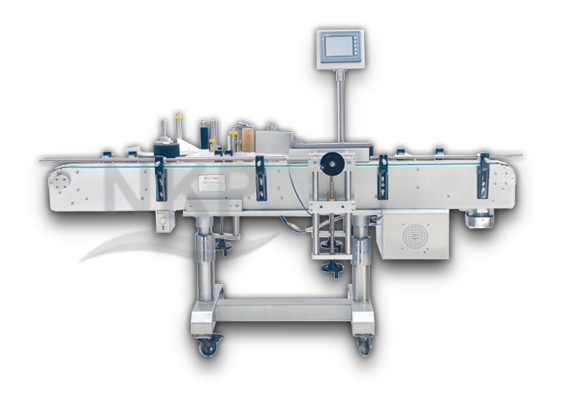Labeling Machine Types and their Applications
Appropriate labelling of products is a basic requirement for just about any industry, especially the food industry. All food products are legally required to contain appropriate labelling. This label should contain ingredients used in the product and warn the consumer of any special facts that require attention. Besides the food industry, a labelling machine is applicable to several other applications. For example, if a bottle contains toxic material it is necessary to place an appropriate label notifying everyone that a martial is toxic.
Types of labelling machines
There are several types of labelling machines as listed here:
Manual Label Applicator: This is a cost-effective solution that requires the operator to perform a task manually. It is a good option for those who wish to keep costs low and do not have a lot of packages to the label. It can apply up to 1000 labels an hour and is usually for bottles. The benefit of this type of a manual machine is that it is possible to keep the costs low and that it does not require a lot of training.
Semi-Automatic Label applicator: A semi-automatic labelling machine is better than the manual one and will usually have a feature of being able to activate by simply using a switch. These are usually quite compact machines, suitable for labelling different types of containers on both sides, front and back. This type of machine will have a higher production rate and require a higher skilled level as well.
In-line automatic labelling: An in-line labelling machine is an equipment that is highly automated and useful for high volume projects. This type of machine is likely to be more expensive however provides more efficient and effective packaging and labelling. It is a highly automated machine and thus helps reduce labour costs.
Rotary labelling: This is a good high-speed labelling machine that is suitable for round the clock (24*7) operations. These machines are highly customised to fit inside an operational plant besides which they are very rapid It has an ability to handle over 500 units every minute.

Application of Labeling machine
There are two types of labelling machines in general; one that attaches or sticks pre-printed labels and the other that prints details on a label and then sticks it on the product. There several applications and advantages of using these type of labelling machines as listed here:
A labelling machine usually does not require a lot of manual work since these are highly automated machines that perform as desired once they are configured in the right manner.
The operator has a choice of designing the label and selecting the design and colour as per the product.
There is an option of selecting a fully automated machine or selecting a simple on for label dispensing.
The main components of a labelling machine include a label printer, printer applicators, label applicator, labelling system. all these systems work together to ensure a product of any shape and size is fitted with the correct label from print to application.
A labelling machine is vital to several industries around the world like the pharmaceutical industry, food and beverages, cosmetic, data collection, agricultural electronics and communication, construction and even animal care industries.
-
A self adhesive labeller like this has several applications for example, pharma syrup, dry syrup, edible oil, lubricant oil, shampoo, phenol, fruit juice, ready to drink juice, cosmetics, talcum powder, herbal powder, wine, liqueur, electrical components, dental products, glue, adhesives, petroleum jelly hand wash,m hand sanitizer, cosmetics, hair wash, etc. It can be used for containers of many different shapes and sizes.
Thus, there are many types of labelling machines including self adhesive labelling machine and vertical labelling machine that are vital to several industries, especially the food industry and pharmaceutical industry.


